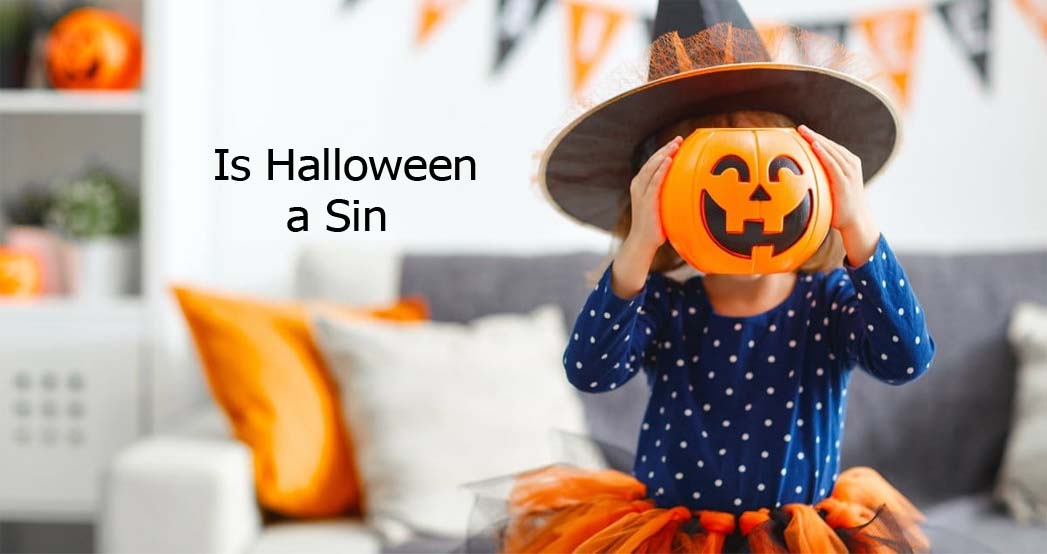Is Halloween a sin? Many religious experts and practitioners all over the world have cited their disgust towards the holiday and not a holiday and in other parts of the world. But what really is Halloween and why is it celebrated? In general, is celebrating Halloween bad, is it a sin?

Is Halloween a Sin
I will be straight with you on this one, whether or not celebrating Halloween is a sin. But if you are Christian, there might be some things that are clear when it comes to celebrating Halloween. It is true that Halloween has both Christian and pagan history. And in this post, we are going to fact-finding in regards to whether Halloween is a sin or not.
Important Facts about Halloween
Celebrating Halloween has pagan roots and many Christians know about this. There are some persons on the other hand who do not know about this in detail. And these details may help them answer whether celebrating Halloween is a sin.
Halloween Pagan Roots
In ancient times the ancient people of Celtic celebrated a festival called Samhain to mark the end of their year. During the festival, locals would light bonfires on hilltops to signal spirits which at the time thought would cross the veil that divides the land of the living and the land of the dead on that night. And on the night of the 31st day of October, the druids are called to engage in sacrifices mostly humans according to records and myths.
Some of these sacrifices included having their victims bob for apples in cauldrons of boiling liquid, and also burning them in larger wicker cages shaped like a man, carving turnips and other gourds filled with human fat and burning in the bid to summon demons and spirits and lastly going door to door collecting human sacrifices.
In 390 BC after the Celts were conquered by Rome, their traditions and cultures were merged with that of the Romans. Feralia is a roman tradition and celebration that was held on the 21st f February where the dead are celebrated with drunkenness and orgies. Another tradition of the Romans is Pomona day, celebrated on the 1st of November. The feast was held in honor of Pomona who is the goddess of fruit trees and fertility and its symbol was the apple.
In America, Halloween made its way to the part of the world when the Irish and Scots migrated to America in the 1840s due to the Irish potato famine. And as they migrated they brought the Samhain festival along with them.
Halloween Catholic Roots
It is no news that Halloween has catholic roots. And with the understanding of the connection, one can decide if celebrating Halloween is a sin or not. After the first century AD, many celebrations and remembrances were held by the church for saints and martyrs all year long that the calendar was packed. During the late 3rd century AD, the Catholic Church created a single day to celebrate all the saints.
And because the Romans already had a day where they celebrated their dead which is Feralia on the 21st of February, the church started celebrating their dead on the day as well. The church however changed the name from Feralia to all saints day after Pope Boniface IV dedicated the Pantheon in Rome to all Christian’s martyrs, therefore, moving the date to May 31.
May 31 was chosen because the Roman festival of Lemuria was held on the same day. This is the day the head of the family would wake at midnight to perform a ritual that would rid the home of all evil spirits. Fast-forward to 741 AD, Pope Gregory III moved the date of all saints day from May 31 to November 1 during the dedication of all saints chapel in Rome and also to co-opt the Samhain festival of the Celts that was still celebrated in the British Isles and Ireland.
In 988 AD the Catholic Church at the time added November 2nd as a day to remember all the souls that did not ascend to heaven but remained in purgatory and called it all souls day. This made the days where the dead was celebrated o three including all saints eve which was celebrated on the 31st of October. The three-day affair was referred to as Hallowmas.
Conclusion
In the bible, there is neither page nor verse that stated anything specific about Halloween, the roman festivals of Samhain for the matter. But, however, made clear some principles that Christians should be familiar with and that may impact the way Christians view Halloween.
